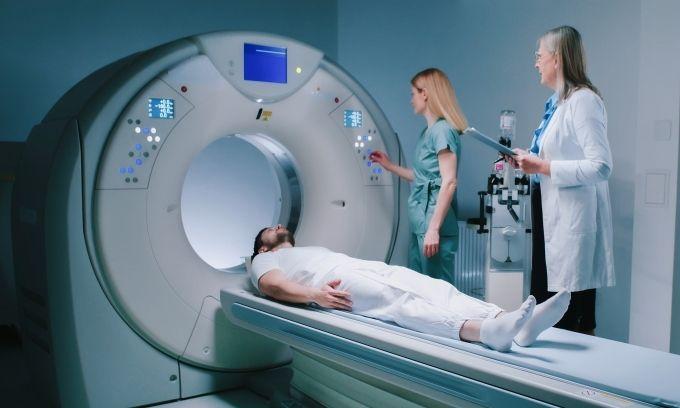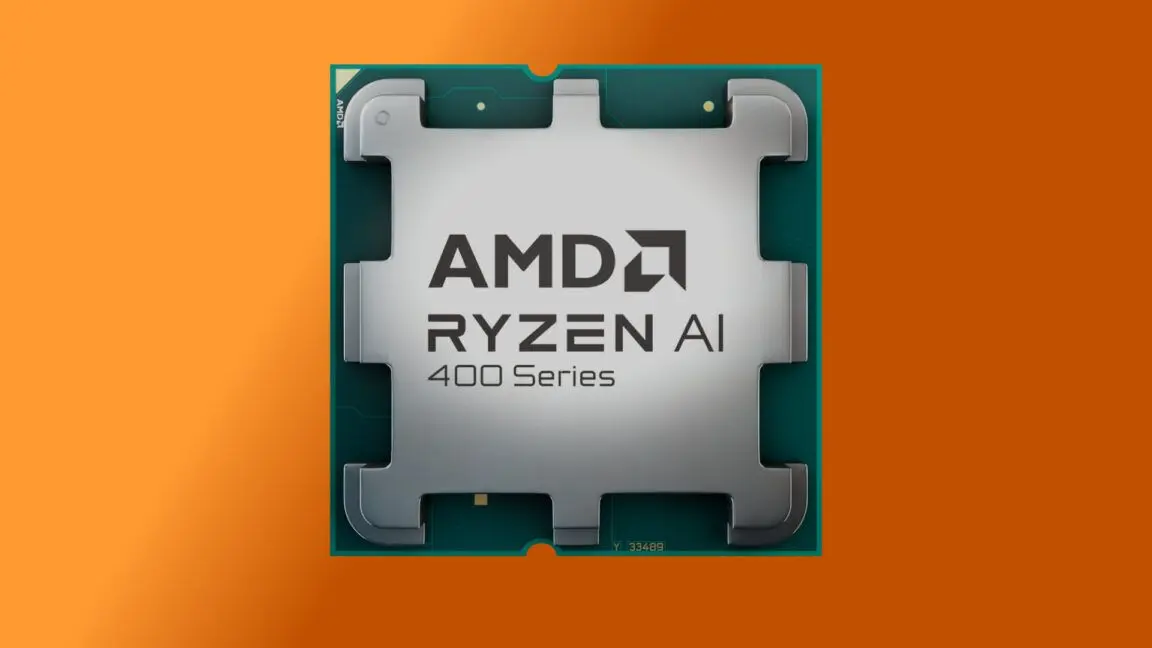Alibaba's AI Model 'Grape' Revolutionizes Early Stomach Cancer Detection
3 Sources
3 Sources
[1]
Alibaba's Grape AI tool spots stomach cancer early using CT scans
Called 'Grape' (short for gastric cancer risk assessment procedure), the system was co-developed by Alibaba's Damo Academy and the Zhejiang Cancer Hospital. Backed by a large-scale clinical study involving nearly 100,000 participants across 20 hospitals in China, the model has significantly improved detection rates for gastric cancer. The AI is designed to address a major gap in cancer screening in China, where invasive endoscopic procedures deter many from undergoing early testing. Unlike traditional screening methods that require inserting a camera down the throat, Grape analyzes three-dimensional CT scans to detect and segment signs of stomach cancer, a deadly disease that often stays hidden until it's dangerously advanced. Plain CT scans have long been considered inadequate for examining hollow organs like the stomach, due to shifting anatomy and the subtlety of early lesions. But the research team overcame these limitations by building the world's largest dataset of gastric cancer CT images, enabling the AI to recognize patterns even experienced radiologists might miss.
[2]
Alibaba's AI Model Outperforms Radiologists In Early Gastric Cancer Detection - Alibaba Gr Hldgs (NYSE:BABA)
Alibaba Group Holding BABA showcased an artificial intelligence (AI) model designed to identify gastric cancer, co-developed by Alibaba's Damo Academy and the Zhejiang Cancer Hospital. The model can detect gastric cancer, even in early stages, by scanning computed tomography (CT) images. The AI model known as Grape derived its name from the "gastric cancer risk assessment procedure." Grape can analyze three-dimensional CT scans to detect and segment gastric cancer, also known as stomach cancer, SCMP reported on Thursday. Also Read: Alibaba Accelerates Global AI Push, Targets Overseas Data Centers Diagnosis of gastric cancer currently requires an endoscopy, prompting the insertion of a camera and tiny biopsy instruments through the throat. Citing a paper published in Nature Medicine on Tuesday, SCMP reported that the Grape model significantly outperformed radiologists. This initiative underscores Alibaba's strategic move to unlock value by integrating AI technology into its various operations, including healthcare. Following a similar approach, Alibaba had already made a breakthrough in detecting pancreatic cancer in 2023, showcasing a growing focus on applying its AI expertise to critical medical challenges. Beyond healthcare, Alibaba is also making waves in the general AI landscape. Last week, Alibaba revealed new Qwen3 AI models, signaling a possible collaboration or rollout with Apple Inc. AAPL in China amid rising local AI demand. Alibaba co-founder and Chair Joe Tsai opted to open-source its Qwen models, citing their potential to drive demand for AI applications and cloud computing. Open source gives the public access to a software program's source code, allowing third-party developers to modify or scale up its capabilities. IMARC Group expects the global open-source intelligence market to reach $58.0 billion by 2033, at a CAGR of 15.93% from 2025 to 2033. Price Action: BABA stock traded higher by 0.11% to $114.06 premarket at the last check Friday. Read Next: Meta Secures More Clean Energy For Power Hungry AI And Data Center Growth Photo by Aunt Spray via Shutterstock BABAAlibaba Group Holding Ltd$114.140.18%Stock Score Locked: Want to See it? Benzinga Rankings give you vital metrics on any stock - anytime. Reveal Full ScoreEdge RankingsMomentum90.94Growth36.70Quality43.25Value84.93Price TrendShortMediumLongOverviewAAPLApple Inc$201.910.45%Market News and Data brought to you by Benzinga APIs
[3]
China's Alibaba unveils world's first AI tool for early stomach cancer detection
Chinese tech giant Alibaba has announced the launch of what it claims is the world's first artificial intelligence model capable of detecting stomach cancer -- including early-stage cases -- using 3D CT scan analysis. The AI model, named GRAPE, was developed jointly by Alibaba's Damo Academy and Zhejiang Cancer Hospital. It leverages deep learning to detect and segment stomach cancer, according to the South China Morning Post. Stomach cancer causes 260,000 deaths annually in China. Early detection can boost five-year survival rates from under 30 percent to more than 90 percent, yet many patients avoid invasive endoscopy, and the quality of screening varies across hospitals, reported by Xinhua. Cheng Xiangdong, Party chief of Zhejiang Cancer Hospital, said fewer than 30 percent of patients in China follow doctors' advice to undergo an endoscopy. The model was tested on over 70,000 patients, producing promising results. The study, published in Nature Medicine on Tuesday, revealed that the AI model achieved 85.1 percent sensitivity and 96.8 percent specificity, outperforming radiologists by 21.8 percent and 14 percent. Zhang Ling, a senior algorithm expert at DAMO Academy and corresponding author of the study, noted, "This marks the first time non-contrast CT can detect early gastric cancer." Cheng highlighted the potential for the model to transform gastric cancer screening in China and globally, with early-stage detection rates likely to "increase significantly." Gastric cancer is the fourth leading cause of cancer-related deaths worldwide, often presenting no symptoms even in advanced stages. Damo added that, in a real-world case, a patient with late-stage disease could have been diagnosed six months earlier via CT scans, but the condition was missed by radiologists. Cheng stated that the AI model has already been deployed in high-risk areas for gastric cancer in China, with plans for broader expansion both domestically and internationally.
Share
Share
Copy Link
Alibaba's Damo Academy and Zhejiang Cancer Hospital have developed an AI model called 'Grape' that can detect early-stage stomach cancer using CT scans, potentially transforming cancer screening in China and globally.
Alibaba's AI Innovation in Cancer Detection
Alibaba Group Holding, in collaboration with Zhejiang Cancer Hospital, has unveiled a groundbreaking artificial intelligence model named 'Grape' (Gastric cancer Risk Assessment ProcEdure) for early detection of stomach cancer
1
. This AI tool represents a significant leap in medical technology, addressing a critical gap in cancer screening, particularly in China where stomach cancer claims 260,000 lives annually3
.The Technology Behind Grape

Source: VnExpress
Grape utilizes advanced deep learning techniques to analyze three-dimensional CT scans, detecting and segmenting signs of gastric cancer
1
. This non-invasive approach overcomes the limitations of traditional CT scans in examining hollow organs like the stomach. The AI model's development involved creating the world's largest dataset of gastric cancer CT images, enabling it to recognize patterns that even experienced radiologists might miss1
.Clinical Study and Performance
The efficacy of Grape has been validated through an extensive clinical study involving nearly 100,000 participants across 20 hospitals in China
1
. The results, published in Nature Medicine, demonstrate the AI model's superior performance:- 85.1% sensitivity and 96.8% specificity in detecting gastric cancer
- Outperformed radiologists by 21.8% in sensitivity and 14% in specificity
3
Addressing Screening Challenges
Grape addresses a significant deterrent in cancer screening - the invasive nature of endoscopic procedures. Many patients in China avoid early testing due to the discomfort associated with traditional methods. Cheng Xiangdong, Party chief of Zhejiang Cancer Hospital, noted that less than 30% of patients follow doctors' advice for endoscopy
3
.Potential Impact on Cancer Treatment

Source: Benzinga
Early detection of stomach cancer can dramatically improve survival rates:
- Current five-year survival rates: Below 30%
- With early detection: Over 90%
3
The AI model has shown promise in identifying cases that human radiologists might miss. In one instance, Grape could have diagnosed a late-stage patient six months earlier through CT scans
3
.Related Stories
Future Prospects and Implementation
Alibaba's initiative extends beyond stomach cancer. The company has previously made strides in detecting pancreatic cancer, showcasing its commitment to applying AI in critical medical challenges
2
. Grape has already been deployed in high-risk areas for gastric cancer in China, with plans for broader expansion both domestically and internationally3
.Alibaba's AI Strategy

Source: Interesting Engineering
This development aligns with Alibaba's broader strategy of integrating AI technology into various operations, including healthcare. The company recently unveiled new Qwen3 AI models and has opted to open-source its AI models, potentially driving demand for AI applications and cloud computing
2
.As the global open-source intelligence market is expected to reach $58.0 billion by 2033, Alibaba's innovations in AI and healthcare position the company at the forefront of this growing field
2
.References
Summarized by
Navi
[1]
[2]
Related Stories
Recent Highlights
1
OpenAI secures $110 billion funding round from Amazon, Nvidia, and SoftBank at $730B valuation
Business and Economy

2
Pentagon accepts OpenAI's autonomous weapons restrictions after blacklisting Anthropic
Policy and Regulation

3
Trump orders federal agencies to ban Anthropic after Pentagon dispute over AI surveillance
Policy and Regulation








